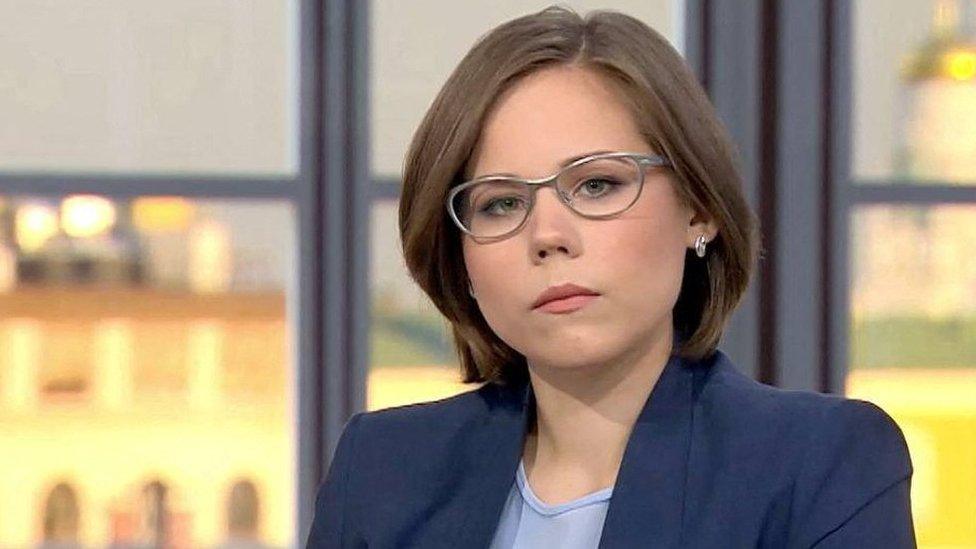Vladlen Tatarsky: Killing of pro-Kremlin blogger investigated as murder
- Published
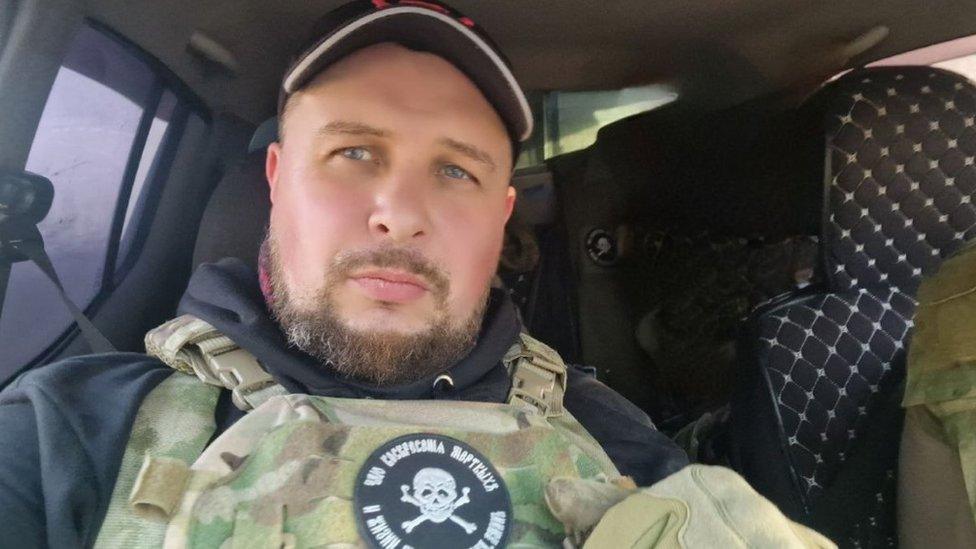
Vladlen Tatarsky posted reports on the Telegram messaging service
The killing of Russian military blogger Vladlen Tatarsky is being investigated as a "high-profile murder", authorities have said.
Tatarsky, a vocal supporter of Russia's war in Ukraine, died in an explosion at a St Petersburg cafe on Sunday evening.
Twenty-four others were taken to hospital and six were in critical condition, the health ministry said.
Videos posted on social media showed a blast and injured people on the street.
It was not immediately clear who was responsible for the attack.
But Ukrainian presidential adviser Mykhailo Podolyak blamed the blast on a Russian "internal political fight", tweeting: "Spiders are eating each other in a jar."
Interior ministry officials said police were called to Street Food Bar No 1 - near the Neva river - at 18:13 local time (15:13 GMT).
Russia's Investigative Committee, the country's top criminal investigation agency, has opened an investigation into what it described as a "high-profile murder".
Criminologists have been sent to the scene, it added on Telegram.
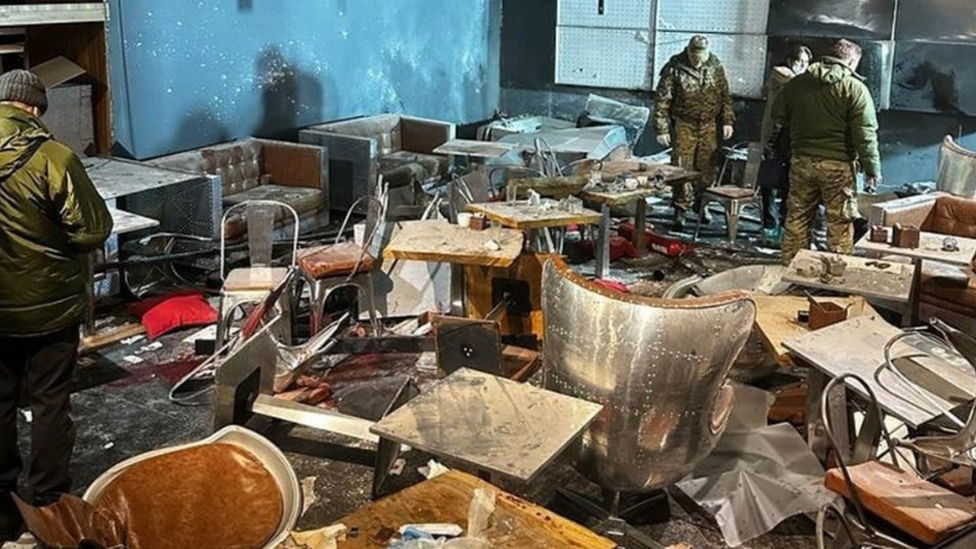
Russian investigators arrived at the scene of the explosion at the St Petersburg cafe
Tatarsky was a guest speaker at an event hosted by the cafe when the bomb went off.
There are conflicting reports in Russian media about the explosive device. According to official sources quoted by Russian state media, Tatarsky was presented with a statue in a box as a gift, which had a bomb hidden inside.
Video circulating on Telegram after the blast showed him being handed a statue and making jokes about it. The BBC has been unable to verify whether it was the explosive.
Watch: Russian military blogger given statue before St Petersburg cafe blast
Unlike many other Russian military bloggers and state media journalists in Ukraine, Tatarsky took up arms in combat operations.
He had reported from the Ukraine front line and gained particular notoriety last year after posting a video filmed inside the Kremlin in which he said: "We will defeat everyone, we will kill everyone, we will rob everyone as necessary. Just as we like it."
The occasion for that was a Kremlin ceremony hosted by President Vladimir Putin, who was proclaiming Russia's annexation of four partly-occupied regions of Ukraine. That land grab was internationally condemned.
The cafe targeted on Sunday was previously owned by Yevgeny Prigozhin, the head of Russia's notorious Wagner mercenary group, the St Petersburg news site Fontanka reports.
St Petersburg is President Putin's home city, and where he first rose to prominence.
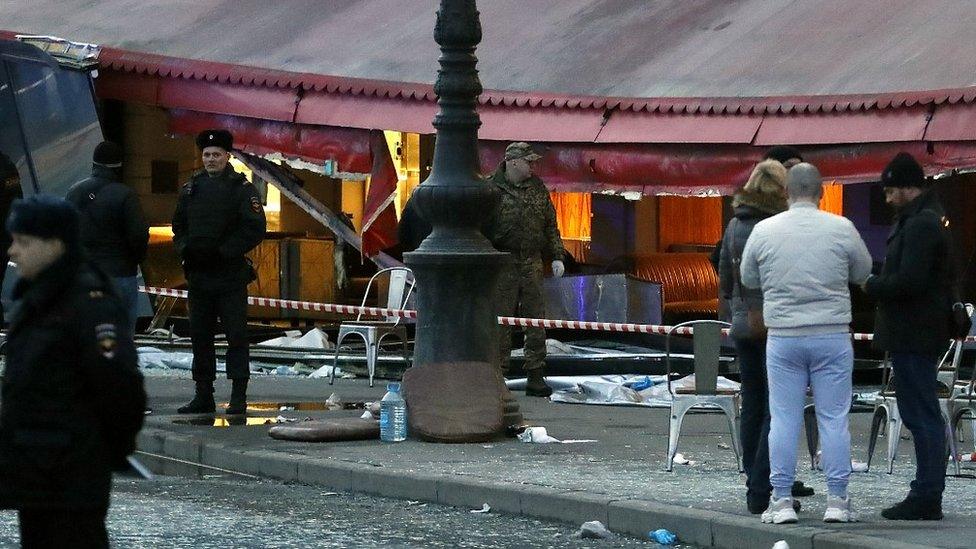
The scene outside the cafe after the bomb blast
Tatarsky had more than 500,000 followers on Telegram, where he and other military bloggers criticised aspects of the Russian campaign in Ukraine.
Cyber Front Z, a group calling itself "Russia's information troops" on Telegram, said it had hired out the cafe for the evening.
"There was a terrorist attack. We took certain security measures but unfortunately they were not enough," its post on Telegram said.
"Condolences to everyone who knew the excellent war correspondent and our friend Vladlen Tatarsky."
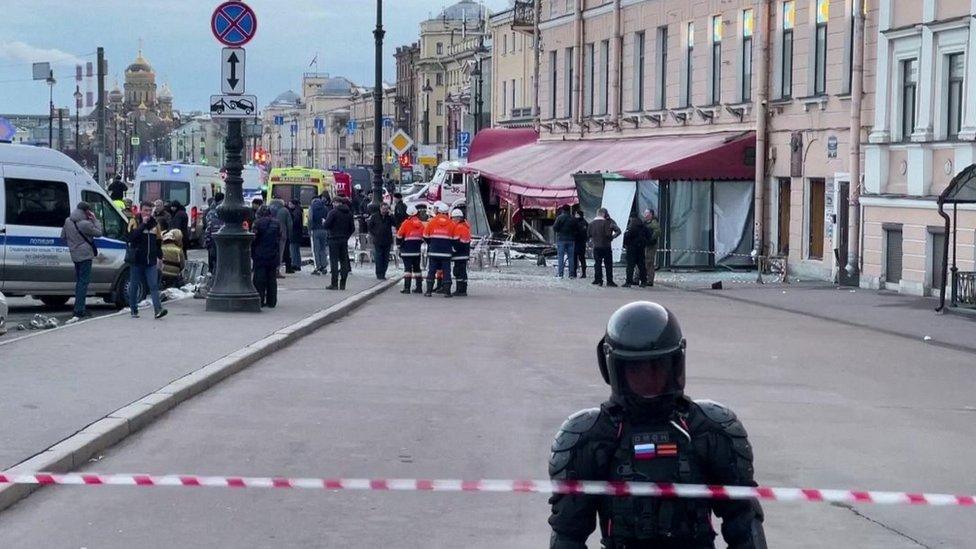
The cafe is located in central St Petersburg
Last August a car bomb attack near Moscow killed Darya Dugina, a journalist and prominent supporter of the Russian military.
She was the daughter of ultra-nationalist philosopher Alexander Dugin, a close ally of Mr Putin.
Tatarsky had joined the Russian separatist forces back in 2014, when they seized a swathe of Donetsk and Luhansk regions in eastern Ukraine.
He was born in Makiivka, in Donetsk region.
According to Tatarsky himself, he joined the Donetsk rebels when they released him from jail, where he was serving time for armed robbery. Donetsk is one of the regions that Russia claims to have annexed.
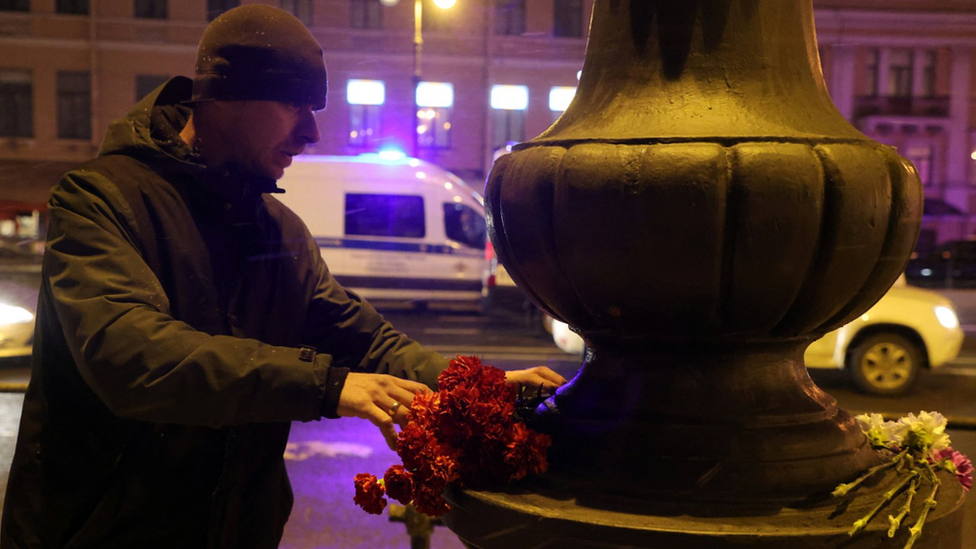
Floral tributes have been laid outside the cafe in St Petersburg
When Russia launched its full-scale invasion of Ukraine in February 2022, Tatarsky returned to combat and commented on the war on social media and Russian state media. He claimed to have helped launch combat drones and build fortifications.
Russian Foreign Ministry spokesperson Maria Zakharova said Tatarsky was "dangerous" for Ukraine "but bravely went on until the end, fulfilling his duty".
Writing on Telegram, she also condemned Western governments for failing to react to the attack.
"The reaction in Kyiv is striking, where those who receive Western grants are in no way concealing their delight at what has happened," Zakharova said.
Ukrainian presidential adviser Mykhailo Podolyak claimed Russian political infighting was on the rise, adding the deadly explosion showed domestic terrorism was breaking out.
Last August, Mr Podolyak dismissed Russian allegations of Ukrainian involvement in the assassination of Darya Dugina.
- Published25 June 2023
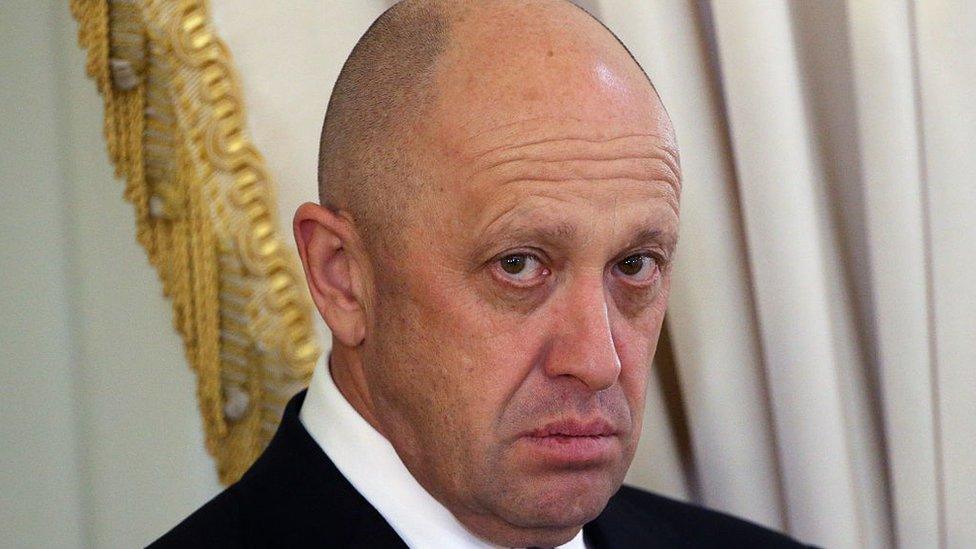
- Published20 July 2023
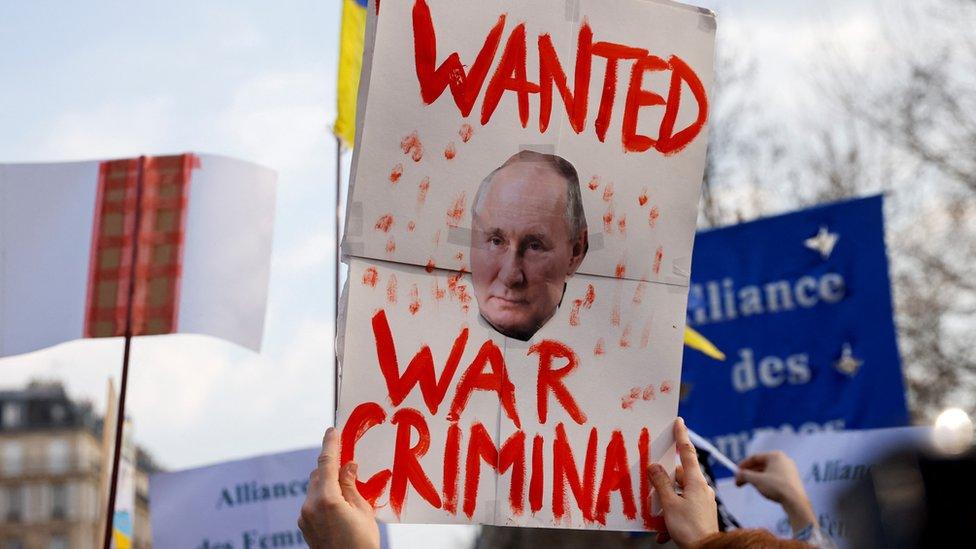
- Published6 March 2023
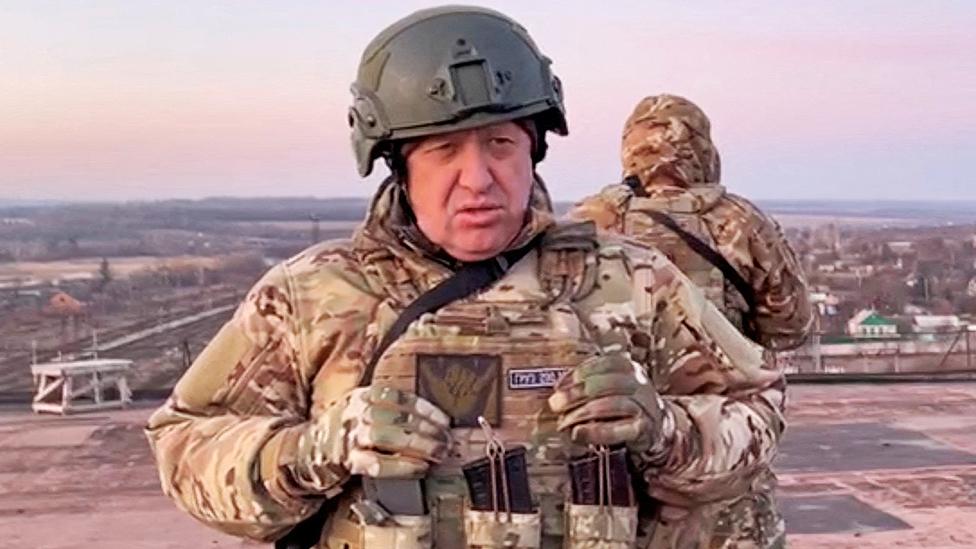
- Published21 August 2022
